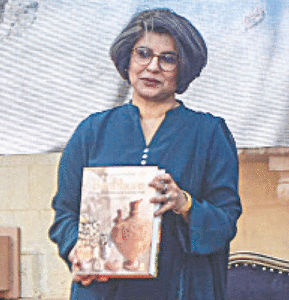KARACHI: Current and former leadership of rights-based commissions, ex-parliamentarians, representatives of federal and provincial governments and human rights activists from civil society, legal fraternity and academia discussed the challenges faced by national and subnational human rights institutions in Pakistan.
They also identified a set of legal measures to ensure continuity and sustainability of these institutions mandated to protect the rights of the weak and marginalised.
The measures were agreed upon at a national conference jointly organised by the Sindh Human Rights Commission (SHRC) and the Trust for Democratic Education and Accountability (TDEA) here on Thursday.
Representatives of the National Commission on Status of Women (NCSW), National Commission on Human Rights (NCHR), Sindh Commission on Status of Women (SCSW) and Sindh Human Rights Commission (SHRC) were also present at the conference.
Serving, former heads demand revival of dysfunctional commissions, end to interference
The speakers called for making all the commissions established in the country functional, truly independent and effective for them to comply with the Paris Principles, 1993, which laid foundations for independent commissions to oversee human rights situation, as well as Pakistan’s Constitution and the laws governing these institutions.
They particularly called for removing legal ambiguities, curbing executive’s interference in and political influence on the selection of chairpersons and members of the commissions due to which many commissions have become dysfunctional or are on the verge of being dysfunctional.
Iqbal Ahmed Detho, chairperson of the Sindh Human Rights Commission opened the conference by highlighting the paramount need to understand the historical context, efficacy and obstacles faced by these human rights institutions.
Shafiq Chaudhary, former chairperson of the NCHR said the legal frameworks governing institutions were not in sync with the letter and spirit of international law, which need to be fixed.
Nuzhat Shirin, chairperson of the SCSW, shared her concerns over the legal ambiguity that leads to discontinuation of functioning of a commission after a term of members and chairpersons ends. Khawaja Imran Raza, secretary of the NCSW said that collaboration and cooperation among commissions and with civil society institutions was crucial for these institutions to deliver as per their mandate.
Attaul Mustafa, Muhammad Rafiq and Abdullah Khoso – the researchers with published works on functioning of commissions in Pakistan – shared their findings highlighting legal, operational and administrative lacunae, which hinder smooth functioning of the commissions. They said that the SCSW and Commission on Status of Women in Punjab, Khyber Pakhtunkhwa, Balochistan and Gilgit-Baltistan were either dysfunctional or not operating with full capacity due to one legal reason or the other.
Justice retired Majida Rizvi ex-chairperson of the SHRC, Anis Haroon, ex-chairperson of the NCSW and Mossarat Qadeem, chairperson of the Free and Fair Election Network (FAFEN) participated in a panel discussion agreeing on the need for removal of legal and regulatory flaws and systematically introducing able and assertive leadership of the commissions. The panel also proposed an inter-commission coordination mechanism for raising collective voice and forge synergies amongst them.
In another panel discussion, former member of National Assembly Nafeesa Shah from the Pakistan Peoples Party (PPP) said that the conference recommendations must be shared with the next governments to initiate the reform process.
Another former MNA, Kishwar Zehra from Muttahida Qaumi Movement (MQM), concurred with the recommendations by technical panels.
Former MNA from Jamiat Ulema-i-Islam Fazl (JUI-F) Naeema Kishwar Khan said the respect for the Constitution should be a basis for human rights institutions in Pakistan.
Former member of Sindh Assembly Mehtab Akbar Rashidi from Pakistan Muslim League-Functional (PML-F) said that accountability mechanisms must be strengthened to protect people’s human rights.
Tehsin Fatima, secretary of the Human Rights Department Sindh, in her remarks, said that effective social change was required to effectively defend human rights in Pakistan.
Omar Soomro, the provincial caretaker Minister for Human Rights, concluded the conference. He said that the bureaucratic system needed an overhaul for it to serve people of the province.
Published in Dawn, November 17th, 2023












































Dear visitor, the comments section is undergoing an overhaul and will return soon.